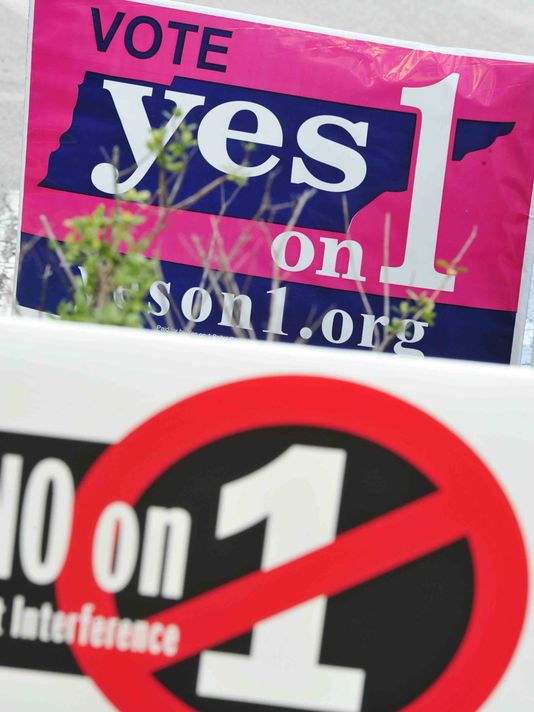NASHVILLE - Opponents of the Tennessee Constitution's new abortion amendment acknowledged today that if their federal challenge of its legality based on the method of counting votes is successful, the same logic might be applied to gut existing amendments under the right circumstances.
"I do suppose that's possible," said Nashville attorney Bill Harbison, who filed the U.S. District lawsuit Friday on behalf of six plaintiffs.
Amendment 1 passed 53 percent of voters casting ballots in favor of it. The amendment changes the Tennessee Constitution to make it easier for lawmakers to pass laws restricting abortion.
The lawsuit claims the state is not correctly tallying votes because the Tennessee Constitution requires amendments receive a majority of votes as those cast in the governor's election.
Harbison said Secretary of State Tre Hargett's office should only be counting the votes of people who also voted in the governor's race. And if that can't be done, they want a federal judge to void the vote.
Asked if the legal theory the lawsuit uses could be used to challenge previously passed amendments such as the 2002 amendment allowing a Tennessee lottery for education, Harbison acknowledged that was possible.
But he quickly noted that a central contention in the lawsuit is there was a deliberate effort by some proponents of the abortion amendment to skip the governor's race in order to make it easier to pass it. He said he saw no evidence of that in the three other amendments on judicial selection, banning a state income tax and allowing veterans' organization to conduct once-a-year raffles.
The lottery amendment passed in 2002 and there was discussion at the time of voters skipping the governor's race, also on the ballot that year, to make it easier to pass with some wanting more votes in the race to make it harder.
Secretary Hargett discounted the plaintiffs' entire theory, saying, "I don't believe it just puts it in the hands of those who just vote in the governor's race. This is how the votes have been counted for quite some time."
Hargett also said discussions of voters deliberately skipping the governor's race to make it easier to pass an amendment came up in debate during a 1953 constitutional convention which inserted the provision linking an amemdment's outcome to a majority of votes in the governor's race.

